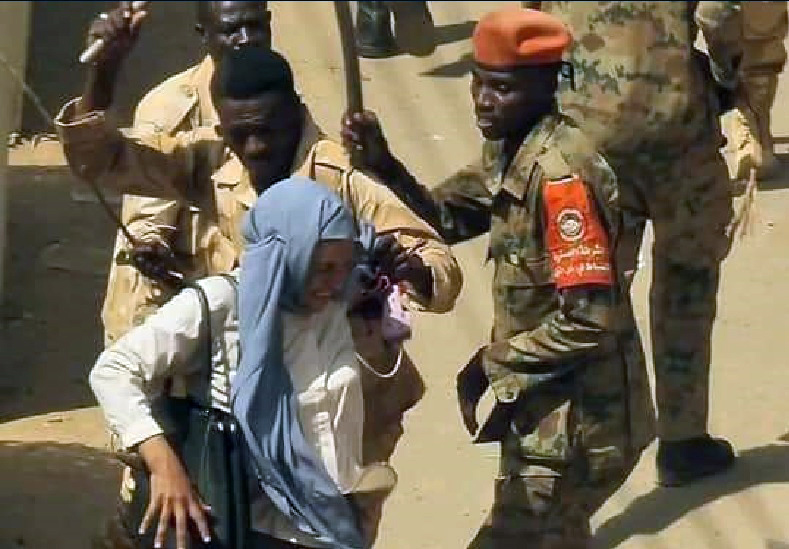Updated: 0 December 0000 00:00:00

Why Does the Sudanese Army Restrict Civilian Activities
By Al-Asmai Basahri
Since the outbreak of the Khartoum War in mid-April of the previous year, the Sudanese army has sought to militarize the public sphere, declaring that all citizens should bear arms and opening recruitment camps in regions and cities not affected by the war. This has been done while tightening the grip on civilian life and cracking down on political activities that reject the futile war, as described by the armys own commander.
At the beginning of May last year, the ruthless campaign of the Sudanese armys intelligence began, arresting political activists from party members in several Sudanese cities. The campaign even escalated to the point of torture and intimidation.
In the cities of Merowe and Karima in the Northern State, military intelligence arrested the leading member of the Unionist Gathering, Sharif Al-Hamadabi, from his home in Merowe and took him to an undisclosed location. In a statement issued by the Unionist Gathering, it was confirmed that the arrest of Sharif indicated that there is a certain entity that wants to manipulate the political landscape to support its war and death agenda, and to obstruct any opportunities to stop it and initiate a political process that would lead to a transitional civilian authority that realizes the slogans of the glorious December revolution.
On June 1st of the past year, army forces stormed the house of Dr. Ala Naguib, a member of the Sudanese Professionals Association, and he was transported to an undisclosed location before being released. Statements from the Sudanese Resistance Committees called on any politician or member of resistance committees in areas under army control to secure themselves from a significant wave of arrests.
Activists and politicians only bear the weapon of endorsed speech and awareness of the importance of a peaceful transition of power.
The efforts of the de facto authority continued by opening recruitment camps in Kassala, Medani, Shendi, Damazin, and other cities and states of Sudan. At the same time, any civilian activity was banned.
In Damazin, military intelligence arrested thirty people who attended a celebration marking the 77th anniversary of the founding of the Sudanese Communist Party before releasing them after forcing them to sign pledges not to engage in any political or cultural activities.
In this context, military intelligence in the state of Kassala, eastern Sudan, arrested six leaders of the Civil Front who participated in a meeting held in the city of Kassala on August 12, 2023. They were informed that instructions were issued to arrest anyone who participated in the meeting and that civilian activities are prohibited until the war ends.
Political activists in the east consider the move of military intelligence to be illegal and view the states apparatus in the state as illegitimate. It has abandoned its role in providing services and managing work, instead prioritizing the protection of elements of the former regime who fled from prisons at the outbreak of the war. It has become, at the same time, a source of fuel to ignite the flames of war by arming militias and recruiting communities, in a situation that cannot tolerate any hostile discourse in eastern Sudan.
According to political analysts, the current war between the Sudanese army and the Rapid Support Forces is a struggle for power and control over Sudans resources and wealth. Any counteractive political activity signifies, for the army and its allies from the remnants of the previous regime, the persistence of the political forces, civilian groups, and Sudanese Resistance Committees in achieving the goals of change by returning the army to the barracks, dissolving militias, and holding those involved in the widespread violations against victims and martyrs accountable.

